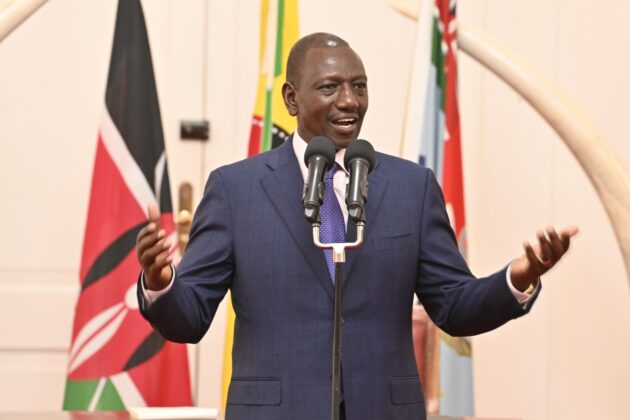Concerns are mounting across Kenya’s health sector following President William Ruto’s revelation that his government has shuttered over 1,000 medical facilities as part of a massive anti-fraud operation. The unprecedented crackdown is targeting healthcare providers linked to fraudulent activities under the Social Health Authority (SHA) — the recently established entity that replaced the National Health Insurance Fund (NHIF) in October 2024.
Speaking to members of the Kenyan diaspora in the United Kingdom on Thursday, July 3, President Ruto defended the move, saying it was essential to preserve the credibility, transparency, and effectiveness of the new healthcare scheme.
“The criminal elements that are staining SHA will not succeed,” Ruto said firmly. “We have tracked and closed over 1,000 medical facilities engaging in fraud.”
The President warned that the clean-up operation is still ongoing and indicated that more health centers could be closed in the coming days. He emphasized that rooting out corruption was vital to ensure that SHA — which was introduced to deliver universal healthcare — operates with integrity and serves all Kenyans fairly.
“This is not over. More [facilities] are on the way,” he declared. “Our health programme must remain efficient and incorruptible.”
SHA Outperforms NHIF, But at What Cost?
Despite the upheaval, President Ruto celebrated SHA’s performance since its launch. In just eight months, the Social Health Authority has reportedly served more than 4.9 million Kenyans, a figure the president claims surpasses what NHIF achieved over a similar period during its years of operation.
“Our Social Health Authority is working,” Ruto stated. “It is a transformative medical scheme that is already exceeding expectations.”
However, while the President painted a picture of progress, healthcare professionals, union leaders, and civil society organizations are expressing growing concern over the unintended consequences of the crackdown — including widespread job losses, service disruptions, and limited healthcare access, particularly in rural and underserved areas where many of the affected facilities were operating.
With over 1,000 clinics, hospitals, and health centers shut down nationwide, the ripple effects are beginning to be felt in communities that now face reduced access to medical care. The closures have also reportedly rendered many healthcare workers jobless, although the government has not yet released official data on the number of displaced personnel or the exact locations of the closed institutions.
Duale: Fraud in the Health System Was Rampant
The mass shutdown aligns with earlier statements made by Defence Cabinet Secretary Aden Duale, who addressed the issue of healthcare fraud during a stakeholder meeting at Tom Mboya Labour College in Kisumu on June 30. He confirmed that at least 35 private hospitals had already been shut down after investigations revealed they had submitted forged documents to gain SHA accreditation or had engaged in dishonest billing practices.
“Some of these facilities were charging inpatient rates for outpatient services to inflate claims,” Duale said. “That is criminal and unacceptable.”
The crackdown, while applauded by some for confronting systemic corruption, has sparked debate over whether the implementation process is being handled in a way that balances justice with public interest.
Growing Public Anxiety Over Healthcare Gaps
As fear and uncertainty grow, healthcare unions and advocacy groups are calling for the government to release detailed information about the closures, outline a plan to absorb displaced healthcare workers, and provide alternative solutions to ensure no region is left without access to essential medical services.
“There’s no question that fraud must be eliminated,” said one health sector analyst. “But the process must also be guided by compassion and foresight. Shutting down thousands of facilities without offering a safety net risks creating a crisis in healthcare access.”
With no clear plan announced for the redeployment of staff or the redistribution of patients affected by the closures, public confidence in the government’s rollout of SHA is being tested — even as President Ruto maintains that efficiency and integrity remain the administration’s top health priorities.
As the dust settles, many Kenyans — particularly those in remote areas — are left wondering what the real cost of reform in the health sector will be, and whether their access to affordable, quality care will survive the purge.










